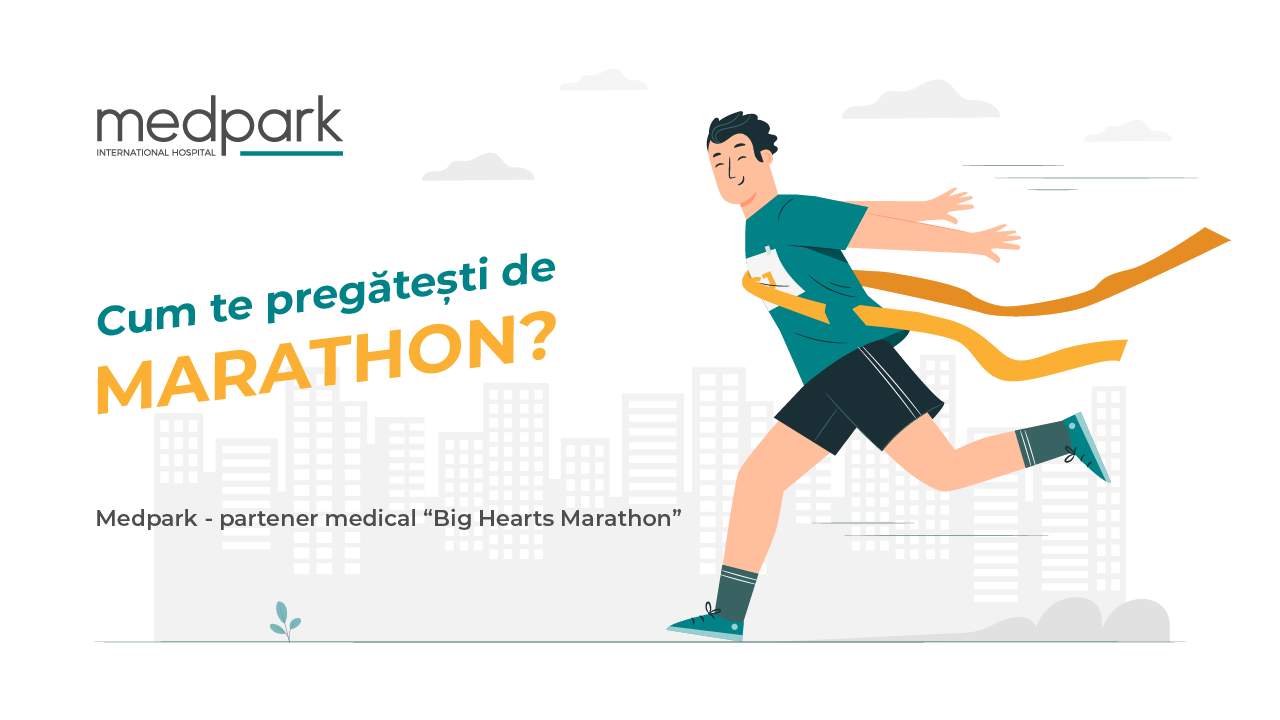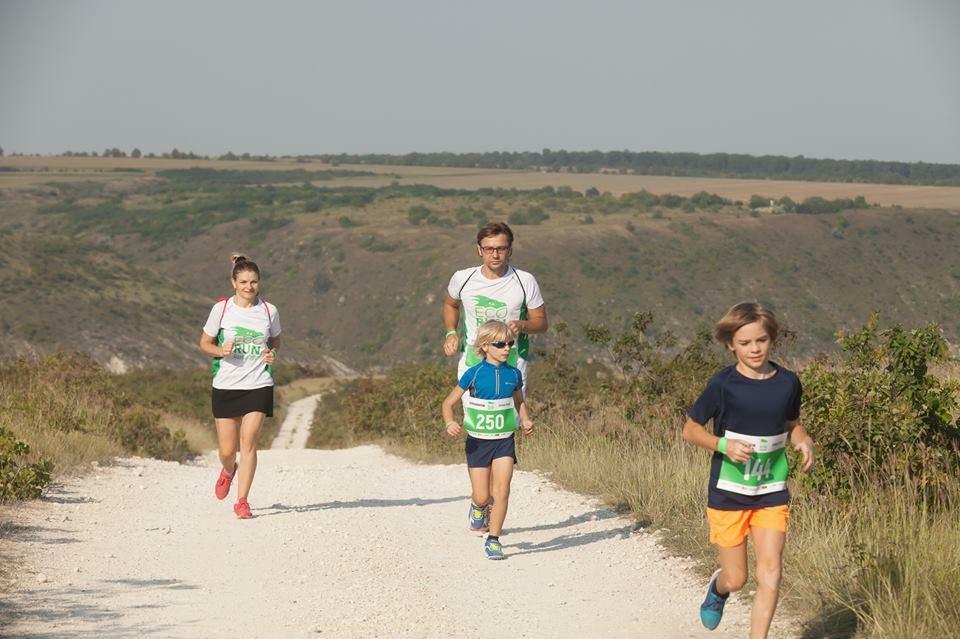
Participating in a marathon is a physically and mentally challenging endeavor, requiring thorough preparation. Medpark internal medicine doctor, Angela Selivanov, offers advice and recommendations for optimal preparation before the marathon.
In the weeks leading up to the event, it's crucial to pay special attention to proper preparation, which includes essential factors such as nutrition, hydration, rest, and training.
These factors can significantly impact your performance and even the final outcome; thus, a careful and well-planned approach will benefit you during the competition.
Gradually shortening your workouts
Gradually shortening your workouts is an essential aspect of marathon preparation. This involves reducing the mileage and intensity of workouts in the last week before the event. This significantly helps the body to recover and accumulate energy for the marathon day, improving performance and reducing the risk of injury. On the day before the marathon, it is especially important to give up any form of training. Allow yourself time for complete rest and relaxation.
How to maintain a healthy diet up to the marathon?
In the days before the marathon, focus on consuming foods rich in complex carbohydrates, such as whole grains, fruits, and vegetables. Carbohydrate loading helps maximize the glycogen stores in the muscles, providing the necessary energy for the race. According to the International Society of Sports Nutrition, those following intense training programs should eat between 5-8 grams per kg of carbohydrates per day.
Proteins are also an important macronutrient for marathon runners. An intake of 1.4-1.8 grams per kg per day is recommended. Proteins will help with easier recovery and injury prevention. They should be distributed throughout the day and are best consumed after physical activity.
Foods to avoid before the marathon:
Hydration during the marathon
Proper hydration is not limited to marathon day only but represents a practice that should be integrated into your regular workouts. In the week before the marathon, focus on gradually increasing your fluid intake, primarily through water and electrolyte-rich drinks. It's essential to maintain adequate hydration without overloading your body.
During the marathon, it's generally recommended to drink about 0.03 to 0.08 liters of water per kilogram of body weight per hour to stay well-hydrated. The water should be at room temperature (not cold). The specific amount within this range can vary depending on individual factors, such as sweat rate, weather conditions, and personal hydration needs.
Also, it's important to consume fluids that contain electrolytes (sodium, potassium, etc., on the bottle, you can find the degree of mineralization, which should be approximately 2.0), to maintain an adequate balance of minerals in the body during the marathon. Consuming excessive water without sufficient electrolyte intake can lead to a condition called hyponatremia, which can be harmful.
Adequate and quality sleep is essential for athlete performance and recovery
Sleep is an extremely important part of marathon preparation; it allows the body to recover and repair damaged tissues during intense training. During deep sleep, growth hormones are released that aid in muscle regeneration and the replenishment of energy reserves.
The amount of sleep needed can vary from person to person, but generally, athletes are recommended to get between 7 and 9 hours of sleep each night in the period leading up to the marathon. Also, it's important to go to bed by midnight to ensure quality sleep.
Pace of the race
Another equally important aspect is maintaining a suitable and controlled pace throughout the entire race. Starting too fast can be tempting, especially when you are full of excitement and adrenaline before the start. However, such an approach can have negative consequences on performance and physical condition in the final stages of the marathon. Instead, try to keep your cool and follow the planned race pace. It's acceptable to increase the pace towards the end of the marathon as you approach the finish line.
Preparing for a marathon requires special attention to training, nutrition, hydration, and rest. By following a well-structured plan and taking care of your body and mind, you can enhance your performance and enjoy the marathon experience to the fullest.
In the weeks leading up to the event, it's crucial to pay special attention to proper preparation, which includes essential factors such as nutrition, hydration, rest, and training.
These factors can significantly impact your performance and even the final outcome; thus, a careful and well-planned approach will benefit you during the competition.
Gradually shortening your workouts
Gradually shortening your workouts is an essential aspect of marathon preparation. This involves reducing the mileage and intensity of workouts in the last week before the event. This significantly helps the body to recover and accumulate energy for the marathon day, improving performance and reducing the risk of injury. On the day before the marathon, it is especially important to give up any form of training. Allow yourself time for complete rest and relaxation.
How to maintain a healthy diet up to the marathon?
In the days before the marathon, focus on consuming foods rich in complex carbohydrates, such as whole grains, fruits, and vegetables. Carbohydrate loading helps maximize the glycogen stores in the muscles, providing the necessary energy for the race. According to the International Society of Sports Nutrition, those following intense training programs should eat between 5-8 grams per kg of carbohydrates per day.
Proteins are also an important macronutrient for marathon runners. An intake of 1.4-1.8 grams per kg per day is recommended. Proteins will help with easier recovery and injury prevention. They should be distributed throughout the day and are best consumed after physical activity.
Foods to avoid before the marathon:
- Heavy and hard-to-digest foods: Avoid consuming fatty, fried, or very spicy foods before the marathon. These can cause gastric discomfort and can affect performance during the race.
- Excessive alcohol and caffeine: Alcohol and caffeine can lead to dehydration, so it's recommended to consume them in moderate amounts or avoid them completely in the days before the marathon.
- High sugar content foods: Foods high in refined sugars can cause a rapid rise in blood sugar levels, followed by a sharp drop in energy.
- New or unusual foods: Before the marathon, do not try new foods that you are not used to. It's important to avoid any risk of food intolerance or adverse reactions.
Hydration during the marathon
Proper hydration is not limited to marathon day only but represents a practice that should be integrated into your regular workouts. In the week before the marathon, focus on gradually increasing your fluid intake, primarily through water and electrolyte-rich drinks. It's essential to maintain adequate hydration without overloading your body.
During the marathon, it's generally recommended to drink about 0.03 to 0.08 liters of water per kilogram of body weight per hour to stay well-hydrated. The water should be at room temperature (not cold). The specific amount within this range can vary depending on individual factors, such as sweat rate, weather conditions, and personal hydration needs.
Also, it's important to consume fluids that contain electrolytes (sodium, potassium, etc., on the bottle, you can find the degree of mineralization, which should be approximately 2.0), to maintain an adequate balance of minerals in the body during the marathon. Consuming excessive water without sufficient electrolyte intake can lead to a condition called hyponatremia, which can be harmful.
Adequate and quality sleep is essential for athlete performance and recovery
Sleep is an extremely important part of marathon preparation; it allows the body to recover and repair damaged tissues during intense training. During deep sleep, growth hormones are released that aid in muscle regeneration and the replenishment of energy reserves.
The amount of sleep needed can vary from person to person, but generally, athletes are recommended to get between 7 and 9 hours of sleep each night in the period leading up to the marathon. Also, it's important to go to bed by midnight to ensure quality sleep.
Pace of the race
Another equally important aspect is maintaining a suitable and controlled pace throughout the entire race. Starting too fast can be tempting, especially when you are full of excitement and adrenaline before the start. However, such an approach can have negative consequences on performance and physical condition in the final stages of the marathon. Instead, try to keep your cool and follow the planned race pace. It's acceptable to increase the pace towards the end of the marathon as you approach the finish line.
Preparing for a marathon requires special attention to training, nutrition, hydration, and rest. By following a well-structured plan and taking care of your body and mind, you can enhance your performance and enjoy the marathon experience to the fullest.

Medpark 2.0 - the evolution continues
International Medpark Hospital was launched as the most ambitious medical project in the country, and after 12 years of continuous development, doubling physical capacity in 2023, it is taking Moldovan medicine to another level. Medpark 2.0 aims to handle cases of any complexity and provide patients with individualized treatments with maximum efficiency. The new model of providing medical care is supported by transformations that have taken place in each center and the development of new unique centers at the national and even regional levels.
The medicine of the future, here!
International Medpark Hospital was launched as the most ambitious medical project in the country, and after 12 years of continuous development, doubling physical capacity in 2023, it is taking Moldovan medicine to another level. Medpark 2.0 aims to handle cases of any complexity and provide patients with individualized treatments with maximum efficiency. The new model of providing medical care is supported by transformations that have taken place in each center and the development of new unique centers at the national and even regional levels.
The medicine of the future, here!
